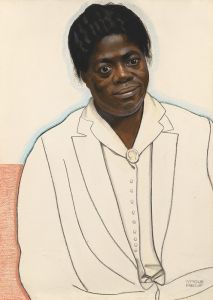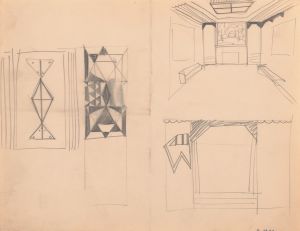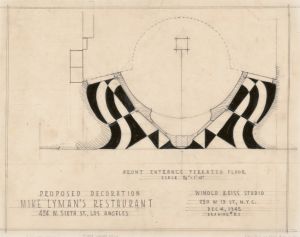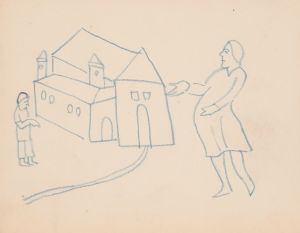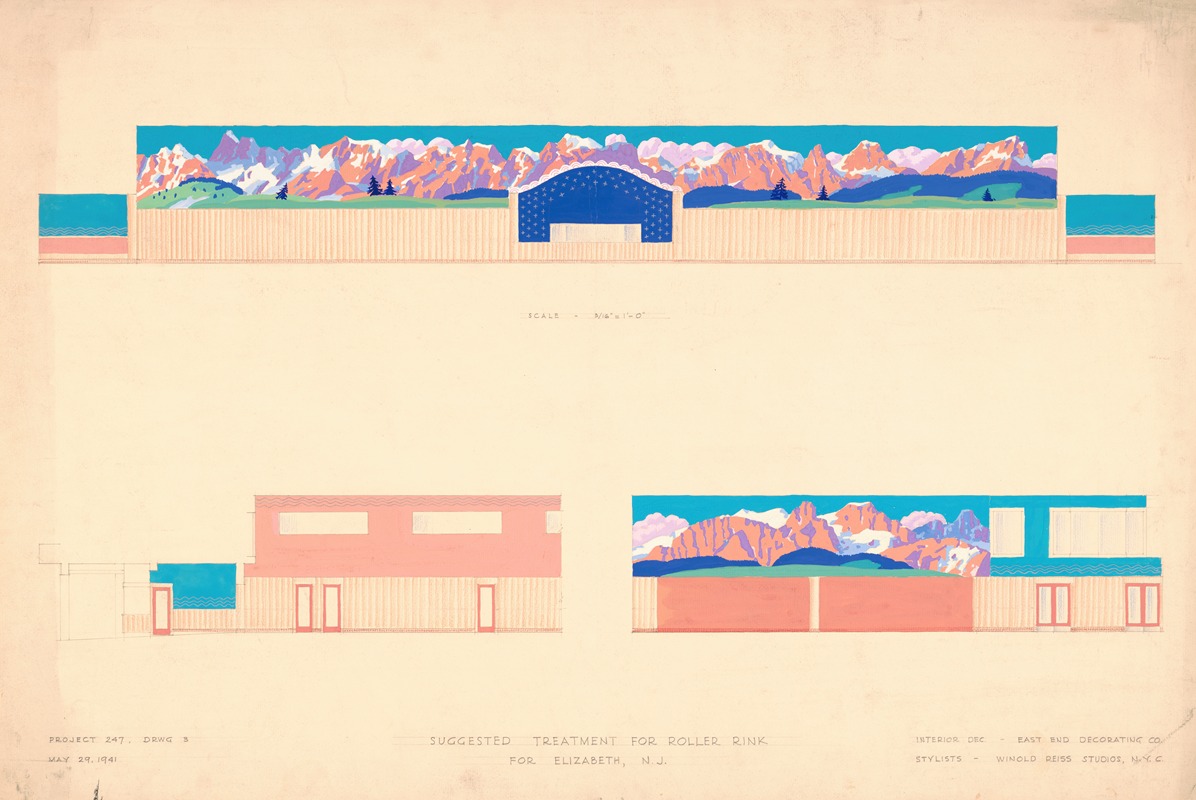
Proposed treatment for roller rink, Elizabeth, N.J.] [Wall elevations, alpine scheme
A hand-painted replica of Winold Reiss’s masterpiece Proposed treatment for roller rink, Elizabeth, N.J.] [Wall elevations, alpine scheme, meticulously crafted by professional artists to capture the true essence of the original. Each piece is created with museum-quality canvas and rare mineral pigments, carefully painted by experienced artists with delicate brushstrokes and rich, layered colors to perfectly recreate the texture of the original artwork. Unlike machine-printed reproductions, this hand-painted version brings the painting to life, infused with the artist’s emotions and skill in every stroke. Whether for personal collection or home decoration, it instantly elevates the artistic atmosphere of any space.
Winold Reiss, a German-American artist and designer, created the artwork titled Proposed treatment for roller rink, Elizabeth, N.J. [Wall elevations, alpine scheme] as part of his broader body of work in decorative and architectural design. Reiss, known for his vibrant use of color and innovative design approaches, was active in the early to mid-20th century and contributed significantly to the integration of art into public and commercial spaces.
This particular piece, created as a proposal, reflects Reiss's interest in blending artistic aesthetics with functional architecture. The design was intended for a roller rink in Elizabeth, New Jersey, and features wall elevations rendered in an "alpine scheme." While specific details about the roller rink project are limited, the artwork demonstrates Reiss's characteristic style, which often incorporated bold geometric patterns, vivid colors, and cultural motifs. His designs frequently drew inspiration from diverse artistic traditions, reflecting his belief in the unifying power of art.
Reiss's work in architectural decoration was highly regarded during his time, and he was commissioned for numerous projects across the United States, including murals, interior designs, and architectural treatments for public spaces such as hotels, restaurants, and transportation hubs. His ability to adapt his artistic vision to a variety of contexts made him a sought-after figure in the field of decorative arts.
The Proposed treatment for roller rink, Elizabeth, N.J. is an example of Reiss's commitment to creating immersive environments that elevated everyday spaces. However, it is unclear whether this specific proposal was ever realized. The artwork remains a testament to Reiss's innovative approach to design and his influence on the integration of art into architectural projects.
Further details about the context or outcome of this particular proposal are not well-documented, leaving its historical impact largely unknown.





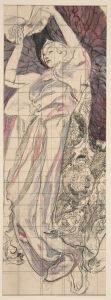
![Graphic designs for Fortune Magazine.] [Study for cover with telephone lines at different locations on the globe](/imgs/249255/s/winold-reiss-graphic-designs-for-fortune-magazine-study-for-cover-with-telephone-lines-at-different-locations-on-the-globe-d53cdea6.jpg)
![Design drawings for Community Coffee Shops, Wilkes-Barre, PA.] [Proposed wall treatment, interior elevation color study with bosky murals](/imgs/249275/s/winold-reiss-design-drawings-for-community-coffee-shops-wilkesbarre-pa-proposed-wall-treatment-interior-elevation-color-study-with-bosky-murals-1ff2a82a.jpg)
![Designs for Shellball Apartments, 8300 Talbot St. at Lefferts Blvd., Kew Gardens, New York, NY.] [Perspective drawing of lobby](/imgs/249322/s/winold-reiss-designs-for-shellball-apartments-8300-talbot-st-at-lefferts-blvd-kew-gardens-new-york-ny-perspective-drawing-of-lobby-e19c70e0.jpg)
![Designs for the Tavern Club, 333 Michigan Avenue, Chicago, Illinois.] [Perspective for main dining room with bay window](/imgs/249329/s/winold-reiss-designs-for-the-tavern-club-333-michigan-avenue-chicago-illinois-perspective-for-main-dining-room-with-bay-window-4b6bebcc.jpg)
![Drawings for proposed decorations of Mike Lyman’s Restaurant, 424 W. Sixth St. Los Angeles, CA.] [Scheme 1; elevation – K – showing bar](/imgs/249336/s/winold-reiss-drawings-for-proposed-decorations-of-mike-lymans-restaurant-424-w-sixth-st-los-angeles-ca-scheme-1-elevation-k-showing-bar-6d934644.jpg)
![Interior design drawings for unidentified rooms.] [Sketch for interior, possibly hotel lobby](/imgs/249361/s/winold-reiss-interior-design-drawings-for-unidentified-rooms-sketch-for-interior-possibly-hotel-lobby-c271d10.jpg)
![Interior perspective studies for Restaurant Crillon, 15 East 48th Street, New York, NY.] [Interior perspective study](/imgs/249374/s/winold-reiss-interior-perspective-studies-for-restaurant-crillon-15-east-48th-street-new-york-ny-interior-perspective-study-57caabec.jpg)
![Proposed treatment for roller rink, Elizabeth, N.J.] [Wall elevations, royal scheme](/imgs/249389/s/winold-reiss-proposed-treatment-for-roller-rink-elizabeth-nj-wall-elevations-royal-scheme-1c7e4bf2.jpg)
![Miscellaneous small sketches for inlaid table tops.] [Design with orange and yellow geometric motif](/imgs/249438/s/winold-reiss-miscellaneous-small-sketches-for-inlaid-table-tops-design-with-orange-and-yellow-geometric-motif-9009d68a.jpg)
